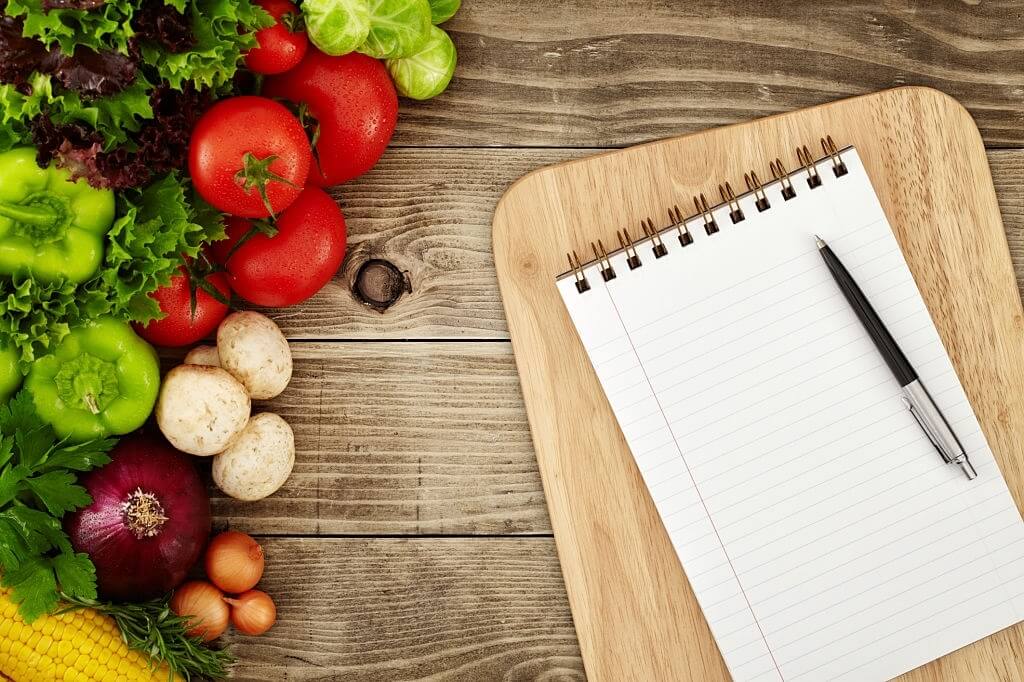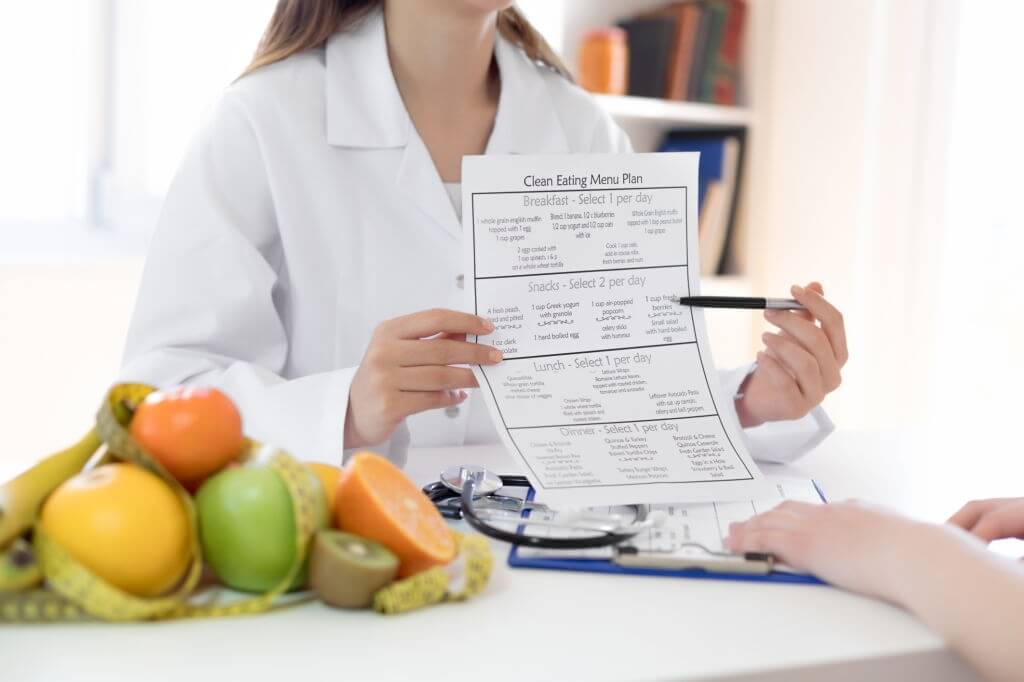Post-surgery Diet and Speedy Recovery – What You Need to Know

Directly above view of notebook and cutting board with raw vegetables around it
Recovering from surgery is a difficult journey. You need tremendous mental and physical strength to come out of the aftermath of a major medical procedure, be it heart surgery, joint replacement, a fracture, spinal procedures, or a cancer operation. Surgical procedures drain out a lot of energy and recovering from this state, going back to your normal life will require you to pay attention to your diet.
The food you eat plays a major role in deciding how quickly and how smoothly you overcome this phase. Your post-surgery diet should help you heal faster and gain enough strength to get back to day-to-day activities.
Food after surgery should ideally include those foods that are highly nutritious, rich in protein, vitamins, iron, calcium, fiber, and probiotics. Each of these nutrients has its own healing and strengthening properties. Visit Dr Kyritsis for the treatment of coccygeal cyst.

Nutritionist showing nutrition plan
For instance, protein is an essential nutrient for healing wounds. Iron and Vitamin B12 help generate new blood cells and the formation of bone marrow. Fibrous and probiotic foods improve your digestion and gut health while improving your immunity too.
What to eat: Food rich in –
- Proteins
- Vitamin C
- Zinc
- Iron
- Vitamin B12
- Fiber
- Probiotics
But while knowing what to eat is important, knowing what to avoid is equally important too. Certain foods like sugary, carbonated drinks can be more harmful than good for you. While sugar is known to increase inflammation and infections, carbonated drinks also dehydrate you instead of quenching your thirst. Sports drinks, on the other hand, contain sodium that makes your body retain water and causes swelling.
What to avoid: Foods that have –
- Excess sugar
- Excess sodium
- Carbonated drinks, sports drinks, etc
Best foods for healing after surgery
Eggs
Consult with your physician and ask them if your condition allows you to consume eggs in your daily meals. Eggs are an extremely rich source of nutrients. While egg whites are one of the richest sources of proteins, the egg yolk has almost all the other nutrients you can imagine. It contains Vitamins A, E, and B complex, folic acid, calcium, zinc, iron, riboflavin, and more. Patients recovering from surgery should definitely include an egg in their diet daily, as long as they have no digestive issues.
Vegetables
We’ve known from the start that vegetables are the best source of vitamins and minerals. Your food after surgery must contain one serving of different vegetables in every meal. Every vegetable you eat has its unique healing properties.
Leafy greens, for instance, are rich in vitamins A, C and E. Eat greens every day, including spinach, kale, lettuce, collard greens, mustard greens, and anything else you like
Other vegetables like carrots are rich in vitamins A, K, and C, potassium, calcium, and iron.
Include at least the following veggies in your post-surgery diet –
- Carrots
- Broccoli
- Brussels sprouts
- Tomatoes
- Sweet potatoes
- Leafy greens
- Bell peppers
- Cabbage
Fruits
Fruits are probably the first food item that strikes our thoughts when we think of foods for healing after surgery. Fruits and berries can be considered superfoods for a post-surgery diet. They are rich in antioxidants that help the body repair and recover from damage. Fruits that are a rich source of Vitamin C, such as oranges, gooseberries, sweet lime, etc. help build collagen and repair soft tissue which will make your wounds and incision sites heal faster.
The best way to eat fruits is to eat them whole. This helps you consume the fiber too and ensures that you get all the goodness from them. But if you are not a fan of fruits in general, you can always turn them into a smoothie to make it easier
So, which fruits should you eat most? Any fruit actually. Pick anything you like from the list below –
- Apples
- Oranges
- Berries
- Melons
- Peaches
- Pomegranates
- Grapes
- Apricots
- Papaya
Healthy fats
There is a lot of buzz about eating healthy fats these days and all for good reason. Fats are an incredible source of energy. Fats also help you absorb other nutrients better, which can be very useful post-surgery. They keep your skin from drying out, so when your scars are healing, they will likely not feel itchy and dry.
Some good sources of fats are –
- Nuts like almonds, walnuts, cashews, pistachios, etc.
- Seeds like sunflower seeds, hemp seeds, sesame, chia seeds, etc.
- Coconut oil
- Olive oil
- Avocado
Meat and other protein sources
Long periods of rest after surgery may cause deterioration in your muscles and loss of strength. Muscles may also be damaged during surgery. This makes it important to consume a significant amount of protein in your post-surgery diet. And what better source of proteins than meat?
If you do follow a non-vegetarian diet, include some kind of meat in at least one meal every day. If you are a vegetarian, you can have vegetarian alternatives that are almost equally rich in proteins. You may want to include –
- Poultry
- Seafood
- Beans
- Pulses and lentils
- Tofu
Whole grains
Whole grains are as important as fruits and vegetables. Whole grains are essential for recovery from surgery because they too contain huge amounts of vitamins, protein, iron, zinc, magnesium, and more. All of these nutrients help in tissue repair, oxygen circulation, and improving immunity.
Some important whole grains to include in your post-surgery diet are –
- Rice
- Millet
- Barley
- Quinoa
- Whole wheat
- Pilaf
Water
Water should probably have been at the top of the list. Hydration is most important when it comes to recovery and healing. Having plenty of water to prevent your body from being dehydrated has a lot of other benefits too. Water flushes out toxins from your body. Since you will likely be on medication for quite a while after surgery, drinking more water to wash off the residue from your system is essential
If you don’t usually like to drink plain water (which you should actually, for best results) you can make it more appealing by flavoring your water with something healthy. You can try –
- Flavoring your water with lime
- Flavoring with mint leaves
- Tender coconut water
- Herbal teas
- Fresh, cold-pressed juices (occasionally)
Summing up
Taking care of your diet post-surgery is an important part of recovery and healing. You need to replenish your body’s energy reserves by consuming the right food after surgery. If you plan to be in rehab after your surgery, choose a good nursing care service in Miami that will ensure that you receive the right kind of nutrition your body needs. If you are going home, consult a nutritionist to know what’s best for you.



